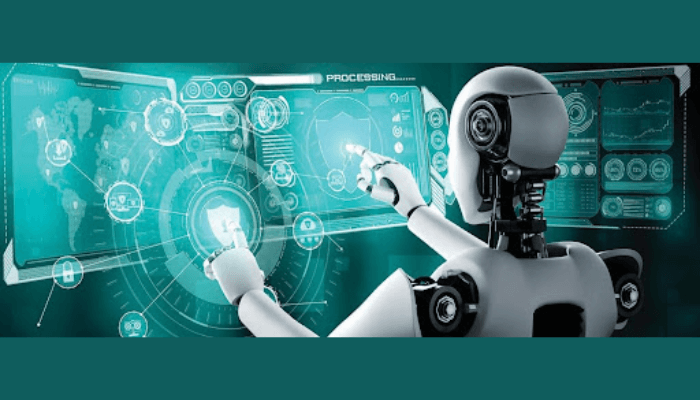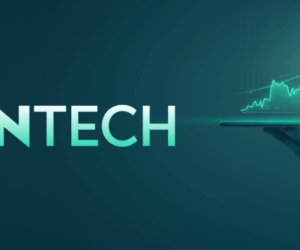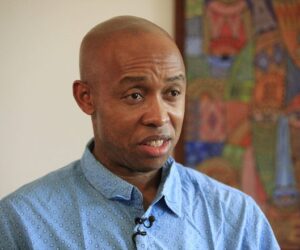A new era of intelligence and disruption
The rise of Artificial Intelligence (AI) is reshaping industries at a pace not seen since the Industrial Revolution. From Lagos to Sydney, from Wall Street to Yaba, AI is no longer a distant promise; it is a daily reality. In healthcare, it diagnoses diseases; in finance, it prevents fraud; in education, it powers personalised learning. By 2030, PwC projects that AI will add $15.7 trillion to the global economy, making it one of the biggest economic shifts in human history.
But as opportunities grow, so do uncertainties. The World Economic Forum predicts that automation will displace 83 million jobs worldwide by 2030, even as it creates 69 million new ones. That tension – jobs lost and jobs gained – defines our era. The story of Michelle Simmons in Australia captures it vividly. Simmons, a brilliant quantum computing pioneer, spent decades building AI-powered systems. Yet in a surprising turn, some of the very AI technologies she helped develop eventually replaced her role in a major project. Her experience shows us that even the architects of AI are not immune to its disruptions.
The real question is: if the creators themselves can be replaced, how much more vulnerable are the rest of us?
The human edge and the risky side of tech careers
AI excels at speed and scale, but it struggles with human traits: empathy, ethical judgement, cultural intelligence, and lived creativity. These uniquely human skills are the strongest shield against replacement. Still, some careers are more exposed to automation risks than others.
Take for example roles like basic software testing, where people manually check code line by line. Today, AI-driven tools perform these tests faster and with fewer errors. Entry-level coding jobs are also under pressure. Writing small scripts, fixing common bugs, or generating simple website structures can now be done by platforms like GitHub Copilot or ChatGPT within minutes. Similarly, routine data entry, Tier 1 IT helpdesk support, and system monitoring are increasingly being handled by AI-powered assistants and dashboards. Even creative fields such as basic graphic and web design face disruption, as AI tools like Canva and Midjourney can instantly produce logos, designs, and templates.
The tech industry has already felt this shift. Between 2022 and 2024, global tech layoffs surpassed 800,000, with many entry-level engineering, support, and operations roles cut as companies adopted AI-driven automation. Workers who once relied on technical skills alone are finding themselves displaced faster than expected.
But not all careers face the same risk. Certain roles are far less likely to be replaced because they require deep human expertise and judgement. Cybersecurity specialists, AI ethicists, cloud architects, product managers, and advanced data engineers are in higher demand. Their roles go beyond coding; they involve decision-making, strategy, innovation, and protecting systems from the very risks AI creates. For example, while AI can detect potential cyber threats, it takes a human to evaluate the broader context, determine intent, and coordinate an ethical response.
The key lesson is that AI replaces tasks, not entire jobs. People who upgrade their skills and learn to use AI as a tool, instead of competing with it, remain valuable. The challenge is whether workers will limit themselves to current expectations or go beyond them, learning new skills, diversifying expertise, and preparing for jobs that AI cannot easily take over. Those who only meet today’s demands may be replaced. Those who learn beyond expectations will thrive.
Lifelong learning as a survival strategy
In a world where job descriptions change faster than university curricula, learning can no longer stop at graduation. McKinsey research warns that by 2030, 375 million workers, i.e., 14% of the global workforce, will need to change careers completely.
This makes lifelong learning a survival strategy. Online platforms now offer certifications in areas like cloud computing, machine learning, cybersecurity, and product design – skills that remain valuable even in an AI-driven market. But learning beyond expectations means combining technical knowledge with human-centred skills. A data scientist who understands psychology, a software engineer who studies ethics, or a teacher who embraces digital tools will always stay ahead of the curve.
In Nigeria, the growing youth population has a unique advantage. Initiatives such as CodeSphere Academy, Skill Sch., Alt School, and government-led digital skill programmes are preparing young people for the global AI economy. But the question remains: will students stop at what is taught, or will they push further, learning what employers will demand tomorrow, not just today?
The road ahead: Thriving, not just surviving
The age of AI is not about resistance but adaptation. The story of Michelle Simmons is a reminder that even pioneers are not safe from disruption. But it is also a reminder that reinvention is possible. Those who thrive will be those who combine human creativity with machine efficiency, those who learn beyond expectations, and those who secure both their digital and professional lives.
By 2035, Accenture predicts AI could double annual economic growth in developed nations. But the true measure will not be GDP. It will be whether humans feel empowered, dignified, and secure. It will depend on whether young Nigerians, Australians, and workers everywhere can look at AI not with fear, but with readiness.
Thriving in the age of AI means more than survival. It means learning beyond the classroom, preparing for jobs that do not yet exist, and treating AI not as a rival but as a partner. It means strengthening the skills that machines cannot copy, protecting our security against AI-driven threats, and above all, remembering that technology exists to serve humanity, not the other way around.
Oladosu Ibrahim Adeniyi, Bsc, Data Analyst, Data Engineer, Cloud/Devops Engineer, Cloud Architect, Co-founder CodeSphere Academy.








